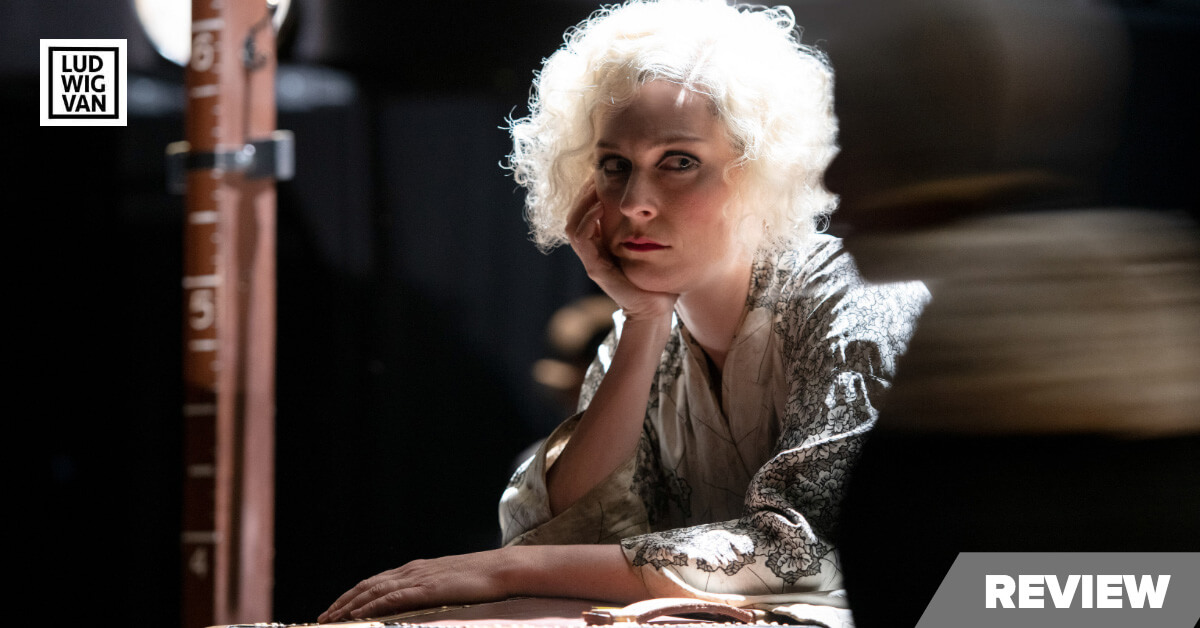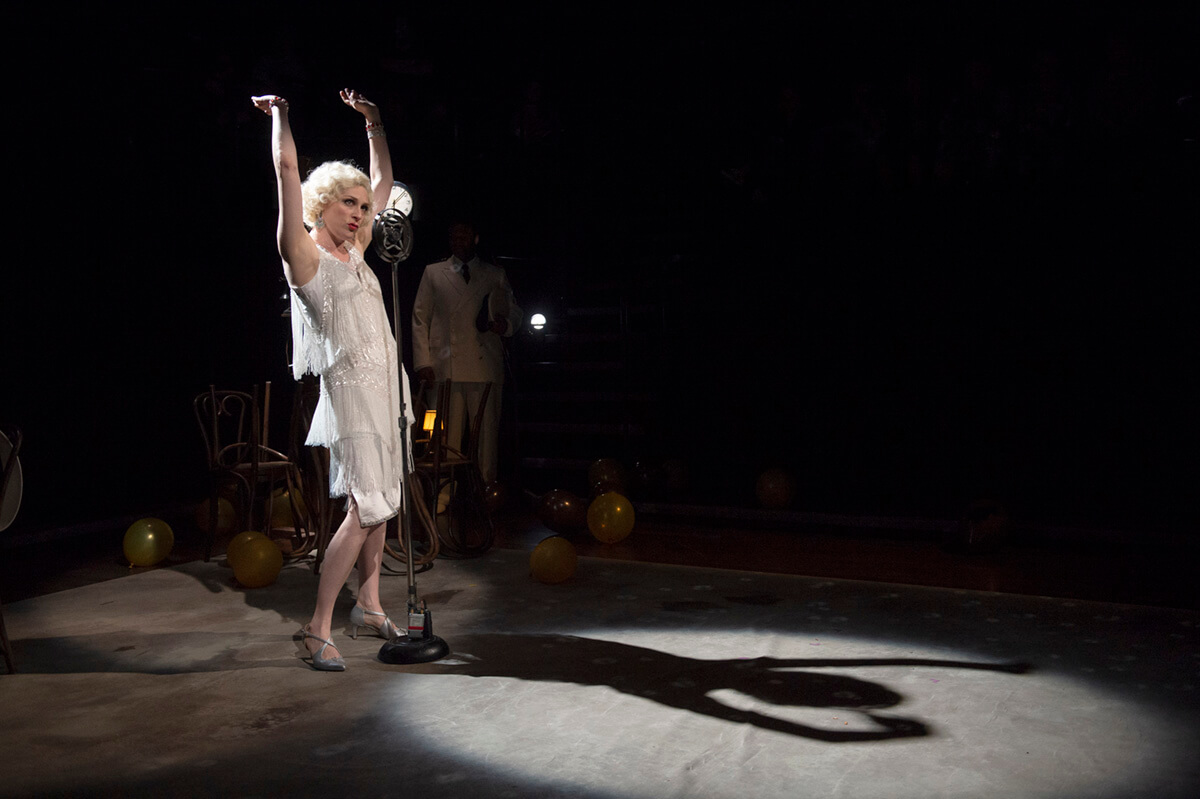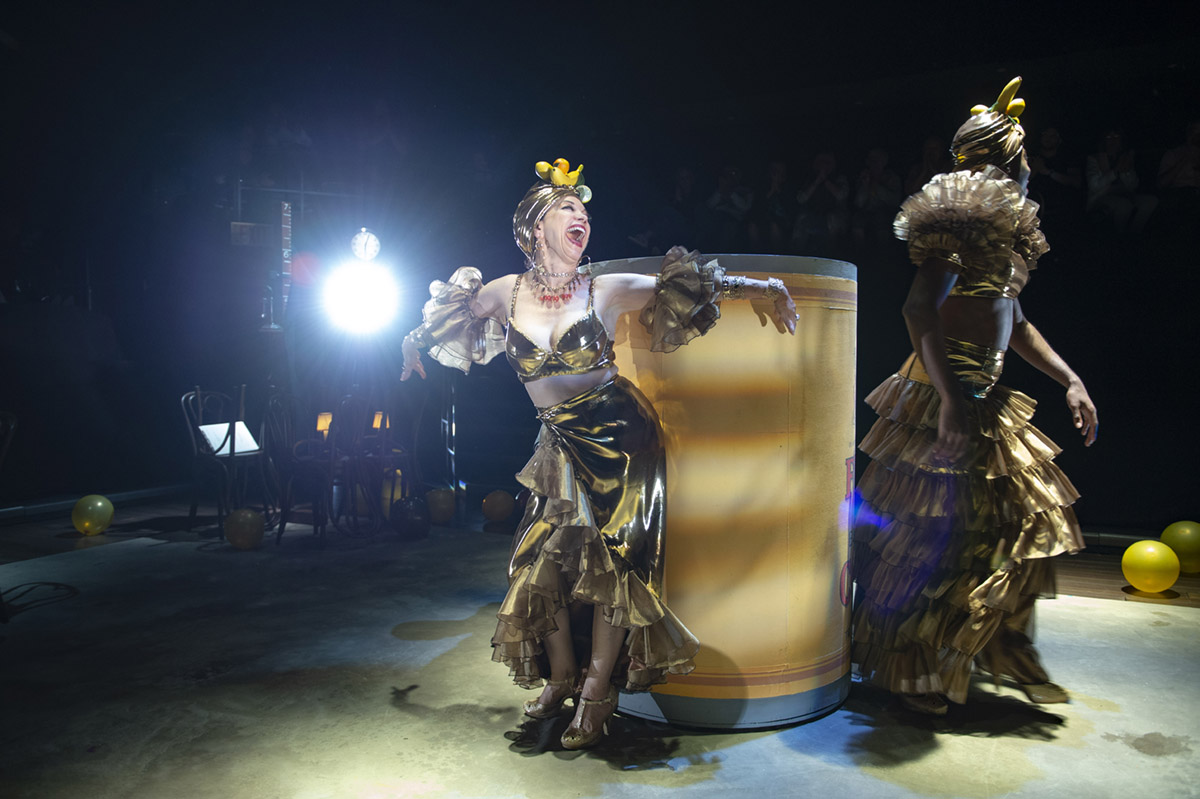
Shaw Festival 2019/ Sex by Mae West, directed by Peter Hinton-Davis, Jackie Maxwell Studio Theatre, Niagara-on-the-Lake, July 5 to Oct. 13. Tickets available at shawfest.com.
Sex (1926), Mae West’s first full-length play, is a curiosity. While the writing contains hints of the salacious, tongue-in-cheek double entendres that would become the hallmark of West’s Hollywood movies, the dialogue of Sex is serious business. The play’s first two acts are clumsily written, but West found her playwriting chops by the last two acts to create real drama. Should Sex as a theatrical vehicle be dusted off for the stage? That is the question, and I’m siding with the yes vote. A play that examines and exposes the plight of women certainly deserves an airing.
West’s focus is on the underbelly of society, but by bringing the mean street denizens into the light, she is saying that these marginalized people have worth. Her main character, Margy LaMont (Diana Donnelly), is a Montreal prostitute. During American prohibition, people came north of the border to “sin city” to have a fling, including a wealthy society matron, Clara “Smith” (Fiona Byrne). Clara hooks up with West’s pimp, Rocky Waldron (Kristopher Bowman), who drugs and robs her. Without giving too much of the plot away, Margy saves Clara’s life, only to be accused by her of theft. Margy gets a chance at revenge against Clara later in the play, when Clara’s son Jimmy Stanton (Julia Course) falls in love with Margy in Trinidad, where Margy is following the fleet. He doesn’t know her seedy background, and brings her home to meet the parents. Margy sees Jimmy as her chance at respectability.

A great truth emerges from the confrontation dialogue between Margy and Clara that is at the crux of the play. West’s harsh view of circumstance sees a poor woman forced to live on the streets, and a rich one able to have fun-time adventures. When Clara reminds Margy that she is a prostitute, Margy counters by saying the Clara could “afford to give it away”, a telling line if ever there was. Throughout the play, Margy is a hard as nails survivor, but she is also a loyal friend and a fun companion, admired by her many male customers. In fact, the naval lieutenant Gregg (André Sills) wants to marry Margy and take her away to a start-over life in Australia. Donnelly and Byrne are two of Shaw’s top female actors, and their very presence gives Sex integrity. Both give marvellous performances. Donnelly is world-weary and wise, Byrne is upper class clipped and correct, but they are very human below the surface.
To shepherd Sex to the stage, the Shaw fest chose Canada’s go-to man for difficult projects, director Peter Hinton-Davis. He has opted for theatre in the round, and mountains of suitcases as his chief symbol. The first act Montreal scene is littered with them, but by the time we get to the Stanton’s Connecticut mansion, the suitcases are gone and the space is open and free. There are also what looks to be posts at either end of the stage that measure height, like those used in the high jump event. Is Hinton-Davis making statements about mobility and the wish to change circumstance?
Hinton-Davis has also gender-bent. For example, Jimmy is played by a woman (Course) while Margy’s best friend and fellow prostitute Agnes (Jonathan Tan) is a male actor. There are also other gender-bending roles in the play as actors switch between men and women. Is the director saying that men are also victims of circumstance? Both Course and Tan are terrific in their roles, with Course adding a real sense of innocent vulnerability to Jimmy. The entr’actes feature old-fashioned news radio shows, and even a documentary on Trinidad. What makes Hinton-Davis such a fascinating director are his choices in casting and staging. You may argue with his theatricalities, but he is always interesting.

Designer Eo Sharp’s period costumes are brilliantly character-driven. For example, Margy dresses in black in her prostitute days, and switches to a glamorous white look when she is concealing her past. Bonnie Beecher’s lighting, especially around the suitcases, is precision at its best, while Ryan deSouza has crafted a score of torch songs and Latin-themed dance music that perfectly suits watering holes, both high and low. The actors even form an on-stage band.
When it comes to oddity plays like Sex, if the big theatre festivals don’t stage them, then who will? The play gels in its third and fourth acts. It gives us hard-hitting dialogue about men who continually take advantage of women, be they pimps or police. It gives us a heroine in Margy who may be down and out, but who has her own integral sense of self-worth. Sex makes a strong feminist statement. I say this kind of play is worth doing.
LUDWIG VAN TORONTO
Want more updates on classical music and opera news and reviews? Follow us on Facebook, Instagram or Twitter for all the latest.
- INTERVIEW | Actor Diego Matamoros Takes On Icon Walt Disney In Soulpepper Production Of Hnath Play - April 16, 2024
- SCRUTINY | Opera In Concert Shine A Light On Verdi’s Seldom Heard La Battaglia Di Legnano - April 9, 2024
- SCRUTINY | Lepage & Côté’s Hamlet Dazzles With Dance And Stagecraft Without Saying Anything New - April 5, 2024



